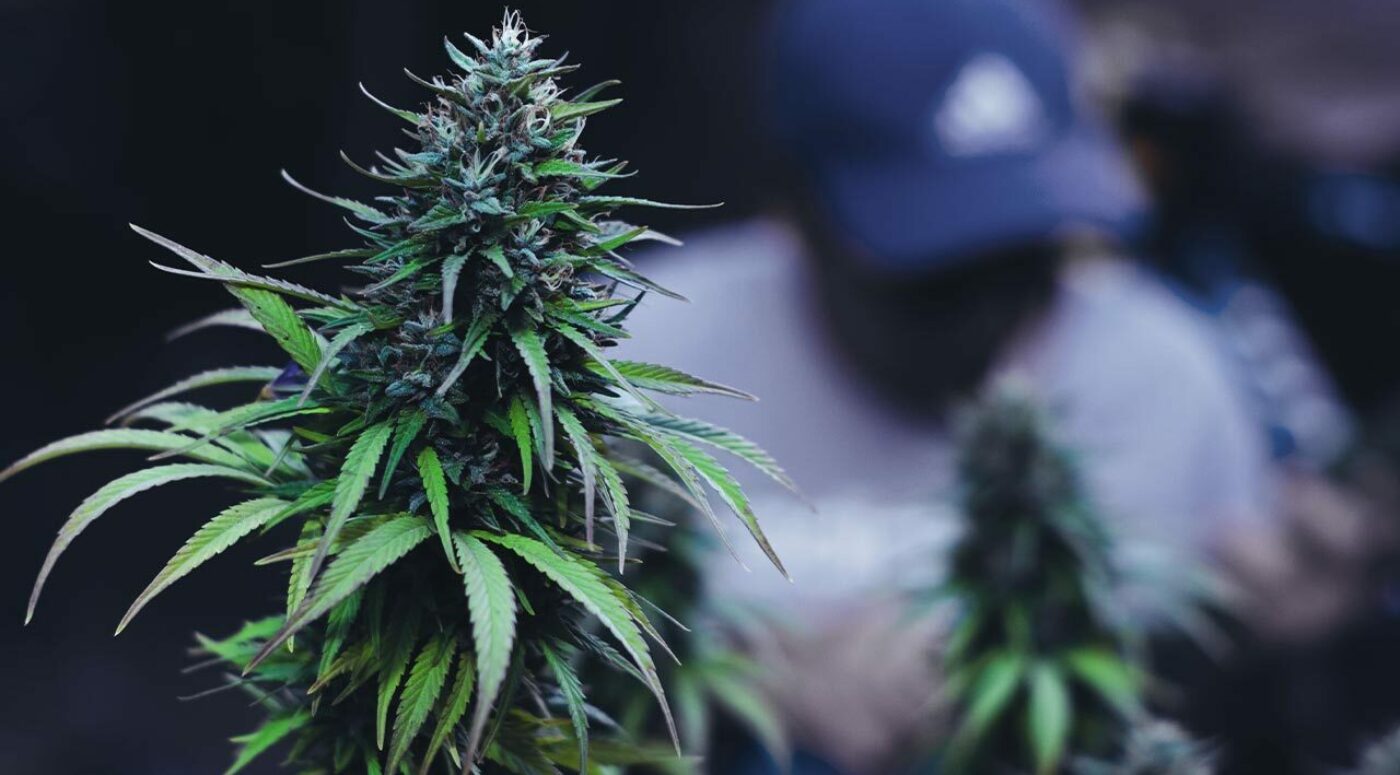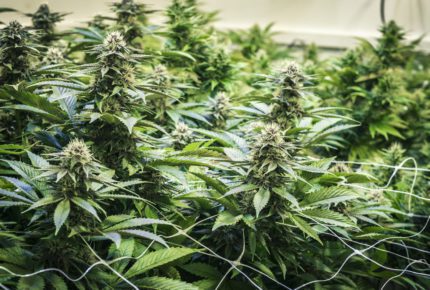

Cultivating cannabis in the UK is a very serious offence, punishable by a maximum term of 14 years’ imprisonment or a series of other sanctions such as fines and shorter prison sentences for lesser offences. If you or someone you care about has been charged with or is facing prosecution for cultivating cannabis in the UK, getting legal advice is essential. In this article, we outline the offence of cultivating cannabis, give some examples of how this offence is committed, outline sentencing, and discuss whether first-time offenders are likely to receive a term of imprisonment for their first offence. Information on where to get more help is also included.
What is the offence of cultivation of cannabis in the UK?
The offence of cultivation of cannabis in the UK under the Misuse of Drugs Act 1971 is the production of cannabis plants for the purpose of supply or for personal use, respectively.
- Section 4(2)(a) of the Misuse of Drugs Act 1971 states that it is an offence to produce or attempt to produce a controlled drug in contravention of section 4(1) of the Act. Section 4(1) of the Act states that it is an offence to supply or attempt to supply a controlled drug to another person. Cannabis is a controlled drug, so cultivating cannabis for the purpose of supply is an offence under section 4(2)(a) of the Act.
- Section 6(2) of the Misuse of Drugs Act 1971 states that it is an offence to cultivate any plant of the genus Cannabis in contravention of subsection (1) of the Act. Subsection (1) of the Act states that no person shall cultivate any plant of the genus Cannabis, subject to any regulations under section 7 of the Act for the time being in force. There are no such regulations in force at the present time, so cultivating cannabis for personal use is also an offence under section 6(2) of the Act.
As we outline in more detail later, the maximum penalty for cultivating cannabis for the purpose of supply is 14 years’ imprisonment. The maximum penalty for cultivating cannabis for personal use is 5 years’ imprisonment. However, first-time offenders are unlikely to receive a prison sentence for their first offence, unless the operation was large-scale or commercial.
What are some examples of cultivation of cannabis offences in the UK?
Here are some examples of cultivation of cannabis offences in the UK:
- Growing cannabis plants in a garden, greenhouse, or indoors
- Using hydroponics or aeroponics to grow cannabis plants
- Growing cannabis plants for personal use or for supply
- Being involved in a commercial cannabis cultivation operation
- Possessing equipment or materials used for the cultivation of cannabis, such as grow lights, hydroponics systems, and fertilisers
What happens if you are suspected of committing cultivation of cannabis in the UK?
If you are suspected of committing the cultivation of cannabis in the UK, the consequences are likely to be very serious. The specific steps and consequences can vary depending on the circumstances of the case and the scale of the cannabis cultivation, but here’s a general overview of what can happen if you are suspected of cultivating cannabis in the UK:
- Investigation: Law enforcement agencies, mainly the police and specialist drug squads, may initiate an investigation if there are reasonable grounds to suspect that you are involved in cannabis cultivation. This investigation may involve surveillance, evidence gathering, and interviews.
- Arrest: If there is sufficient evidence, you may be arrested by the police. You will be informed of the reasons for your arrest and your rights.
- Questioning: You may be questioned by the police. You have the right to remain silent and to have legal representation during questioning.
- Charges: If the evidence supports it, you may be formally charged with cannabis cultivation, and a charge sheet will outline the allegations against you.
- Court Proceedings: You will have to appear in court, where you can enter a plea of guilty or not guilty. If you plead not guilty, a trial will be scheduled.
- Trial: The trial will take place in a Crown Court, and the prosecution will present evidence against you. You and your legal representation will have the opportunity to present a defence. If found guilty, you will be sentenced.
- Sentencing: Penalties for cannabis cultivation can vary depending on the scale of the operation and other factors. Penalties may include imprisonment, fines, or both. In the case of smaller-scale cultivation for personal use, sentences may be less severe.
- Confiscation Orders: In some cases, the court may issue a confiscation order, requiring you to forfeit any assets or profits gained from cannabis cultivation.
Legal advice is essential if you find yourself in this situation, as the prosecution process is complex and the consequences can be significant. Contacting an experienced criminal defence solicitor with a track record of successfully defending drugs crimes should be your first step.
What is the sentence for an offence involving the cultivation of cannabis?
The sentence for an offence involving the cultivation of cannabis in the UK will depend on a number of factors, including the size and scale of the operation, the role of the offender, and whether or not the cannabis was intended for supply. The maximum sentence for cultivating cannabis is 14 years’ imprisonment. However, first-time offenders are unlikely to receive a prison sentence for their first offence, unless the operation was large-scale or commercial.
Generally speaking, the sentencing guidelines for cultivation of cannabis offences in the UK are:
- Small-scale cultivation for personal use: First-time offenders who cultivate a small number of plants (usually no more than six) for their own personal use are unlikely to receive a prison sentence. The offender may be given a warning, caution, or fine.
- Medium-scale cultivation for personal use or supply: Offenders who cultivate a medium number of plants (usually seven to 100 plants) may receive a community order, such as a suspended sentence or probation. The offender may also be ordered to pay a fine.
- Large-scale cultivation for supply: Offenders who cultivate a large number of plants (usually more than 100 plants) or who cultivate cannabis for the purpose of supply are more likely to receive a prison sentence. The length of the prison sentence will depend on the size and scale of the operation, the role of the offender, and other factors.
In addition to the above, the court may also consider the following factors when sentencing an offender for cultivating cannabis:
- The offender’s previous criminal record
- The offender’s age and maturity
- The offender’s mental and physical health
- The impact of the offence on the community
If you are facing prosecution for cultivating cannabis, you must seek legal advice from a qualified solicitor. A solicitor can help you to understand your rights and options, and they can represent you in court if needs be.
Will I go to prison if it is my first time committing an offence involving the cultivation of cannabis?
The likelihood of someone going to prison for a first-time offence involving the cultivation of cannabis in the UK is low, but not zero. The Crown Prosecution Service (CPS) has a policy of not prosecuting people who cultivate cannabis for personal use if the following conditions are met:
- The offender is a first-time offender.
- The offender cultivates a small number of plants (usually no more than six).
- The offender cultivates the plants for their own personal use and has no intention of supplying them to others.
If the offender meets all of these conditions, they are likely to receive a warning or caution from the police. However, if the offender cultivates a large number of plants, or if the plants are intended for supply, they are more likely to be prosecuted.
Even if an offender is prosecuted for cultivating cannabis for personal use, they are unlikely to receive a prison sentence for their first offence. The most likely outcome is a community order, such as a suspended sentence or probation. However, you should still remember that the court does have the power to impose a prison sentence, even for first-time offenders.
The following factors are likely to increase the likelihood of an offender receiving a prison sentence for a first-time offence involving the cultivation of cannabis:
- The offender cultivated a large number of plants.
- The plants were intended for supply.
- The offender has a previous criminal record.
- The offender is involved in other criminal activity, such as drug dealing.
- The offender’s actions caused significant harm to the community.
The best way to assess whether your particular circumstances will lead to a prison sentence is to get in touch with an experienced criminal defence solicitor with a proven record on drugs crimes.
Where to get further help
Facing drug charges can be very difficult for anyone, but it can be especially difficult for those facing them for the first time. If you or someone you care about requires advice about the cultivation of cannabis for personal or commercial uses, get in touch with the team at Stuart Miller Solicitors today.
OUR COMMITMENTS TO YOU:
-
Responsive
A legal expert will consult you within 24 hours of making an enquiry.
-
Empathetic
We will always treat you with trust, understanding and respect.
-
Specialised
Your case will be handled by an expert who specialises in your type of offence.
-
Proactive
We will take early action to end proceedings as soon as it is practically and legally possible to do so.
-
Engaged
You will be kept updated on your case at all times. We will provide a named contact available to answer your questions.
-
Caring
We understand this is a difficult and stressful time for you and your family. Our team will support you every step of the way.
-
Tenacious
We will never give up on your case. We fight tirelessly to get you the best possible outcome.

